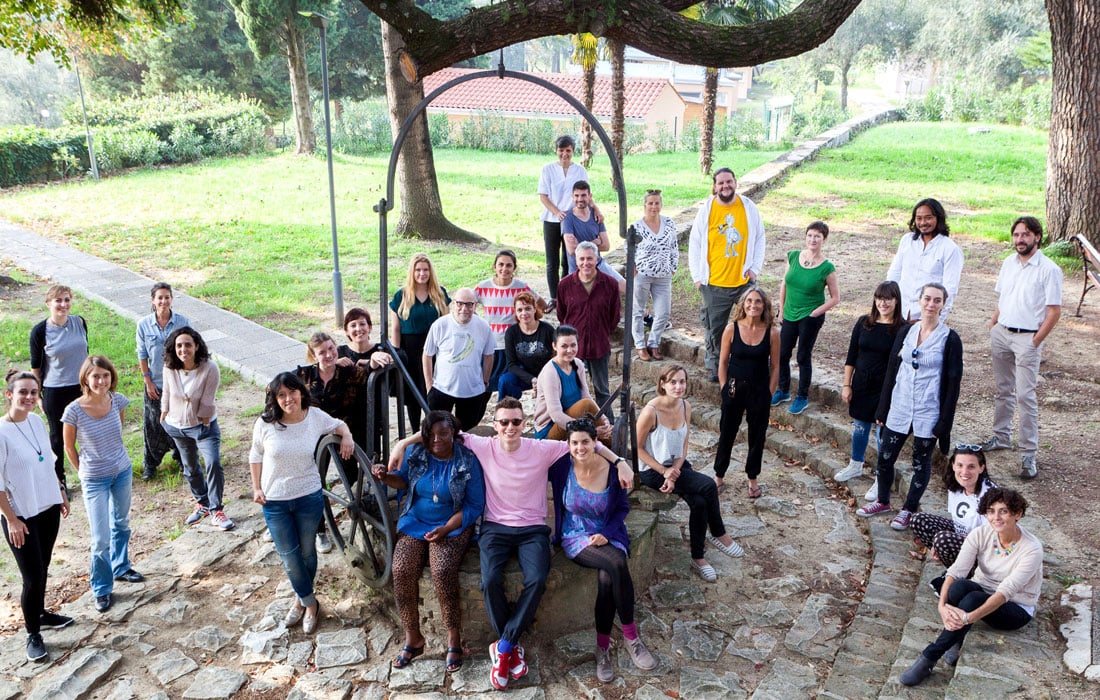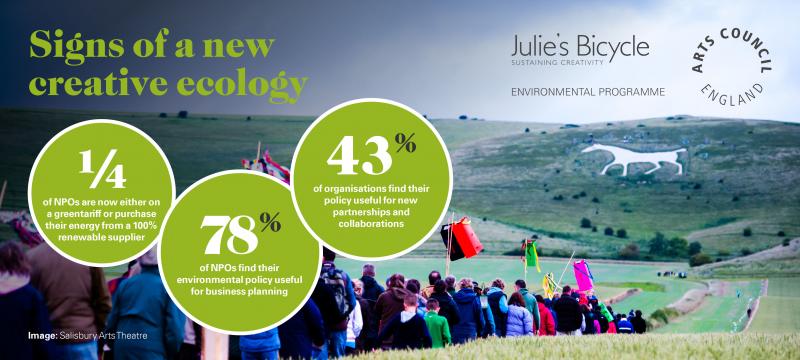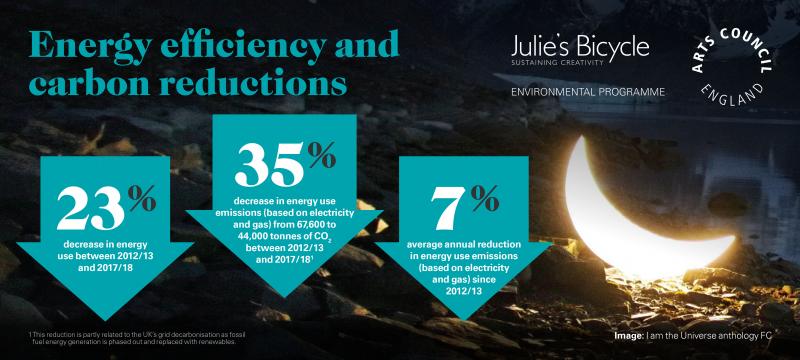
Participants of the second Creative Climate Leadership course, Slovenia October 2017. Creative Climate Leadership is led by Julie's Bicycle and co-funded by the Creative Europe Programme of the European Union.
Photo: © Karim Shalaby
Time to make a noise
Tackling the climate crisis will require rapid and unprecedented change. Chiara Badiali asks whether the sector has what it takes to meet the challenge.
Climate change is rapidly moving back into public view. It is increasingly being recognised for what it is: a systemic challenge involving a complex and dynamic interplay between the planet’s natural processes which is unbalancing the very system itself.
Just so we are under no illusion, the climate crisis is an emergency
Greta Thunberg, the unlikely Swedish 16-year-old star of the climate movement, has pointed out the disconnect between the seriousness of the issue and our lacklustre response. Greta has become a spokesperson for many young people and schoolchildren, and tens of thousands of them have taken to the streets in cities all over the world, with some schools going on strike for climate action.
When the BBC series Blue Planet II unleashed a public debate on single-use plastics, it wasn’t that we were not aware of our dependence on plastic. The voice and the moment were perfect to catalyse the tipping point in our collective imagination. Now it feels like there is a Blue Planet moment coming for climate change.
Cultural response
Julie’s Bicycle has been at the heart of the cultural conversation on climate change for over a decade. We’ve steered it, incubated it, witnessed it, celebrated it – and also been in despair. For years, we have been responding to climate change pragmatically, helping to foster practical and achievable action across the creative community, while continually asking if it’s enough, what more is needed and what could be our tipping points.
Can we shift thinking so that it is commensurate with the challenge? The scale of what we face was set out for us last October, when the Intergovernmental Panel on Climate Change (IPCC) told us we need "rapid, far-reaching and unprecedented changes in all aspects of society”. Are we ready, as a sector, to rise to this challenge?
According to the IPCC, we have just two investment cycles to set a course towards a zero-carbon world.
Holistic approach
We understand the creative sector as an ecosystem. Thriving ecosystems are dynamic, responsive and diverse, with the sum contributing to the whole. This has important lessons for us. If the environment is to become a fully integrated part of the creative ecosystem, we need to work holistically. What might this look like?
- Skills: A creative workforce that is environmentally literate and making good green choices.
- Operations: Institutions and businesses that have an organisational culture predicated on sustainability.
- Creativity: Spaces and frameworks that enable a full range of creative expression to shape our human experience of climate change and the environment.
- Strategy: Cultural policy, investment and planning that locks in climate change and environmental sustainability as a civic priority.

Here are some of our initiatives you can get involved in:
- Our international Creative Climate Leadership training programme for artists and professionals to explore the cultural dimensions of climate change, and take action with impact, creativity and resilience. For our first two courses, we received applications from over 40 countries, demonstrating the appetite and huge range of creative responses.
- The Creative Green consultancy programme has been helping to integrate environmental sustainability into organisations. Clients include the V&A, theBRIT Awards, the Royal Albert Hall, Curzon Cinemas and the British Fashion Council.
- Creative Green Certification is a framework for environmental action, bringing together cultural businesses of all sizes, from theatre to music, festivals to museums.
- The Season for Change programme (see this issue's case study), and our soon to be launched podcast The Colour Green.
- International urban development projects such as the World Cities Culture Forum and URBACT.
- Our ongoing partnership with Arts Council England, which provides support to scale up many of these themes across the arts sector in the UK.
Many more people are now coming into this space, building greater collective knowledge and will. We are unlocking new supply chains, relationships with communities, politicians and research institutions, and new spaces for the creative community in relation to the rest of society.

Make a noise
But just so we are under no illusion: the climate crisis is an emergency. New research on the collapse of our global insect population is only the most recent in a succession of symptomatic indicators that are deeply disturbing. We still believe that culture can do so much at this extraordinary point in our collective history. It's time to get up and make a noise.
Chiara Badiali is Project Manager at Julie's Bicycle.
www.juliesbicycle.com
Tw @juliesbicycle
The two figures above show findings from Julie’s Bicycle’s report Sustaining Great Art and Culture with Arts Council England, measuring improvements in environmental practice across the arts sector.
Join the Discussion
You must be logged in to post a comment.